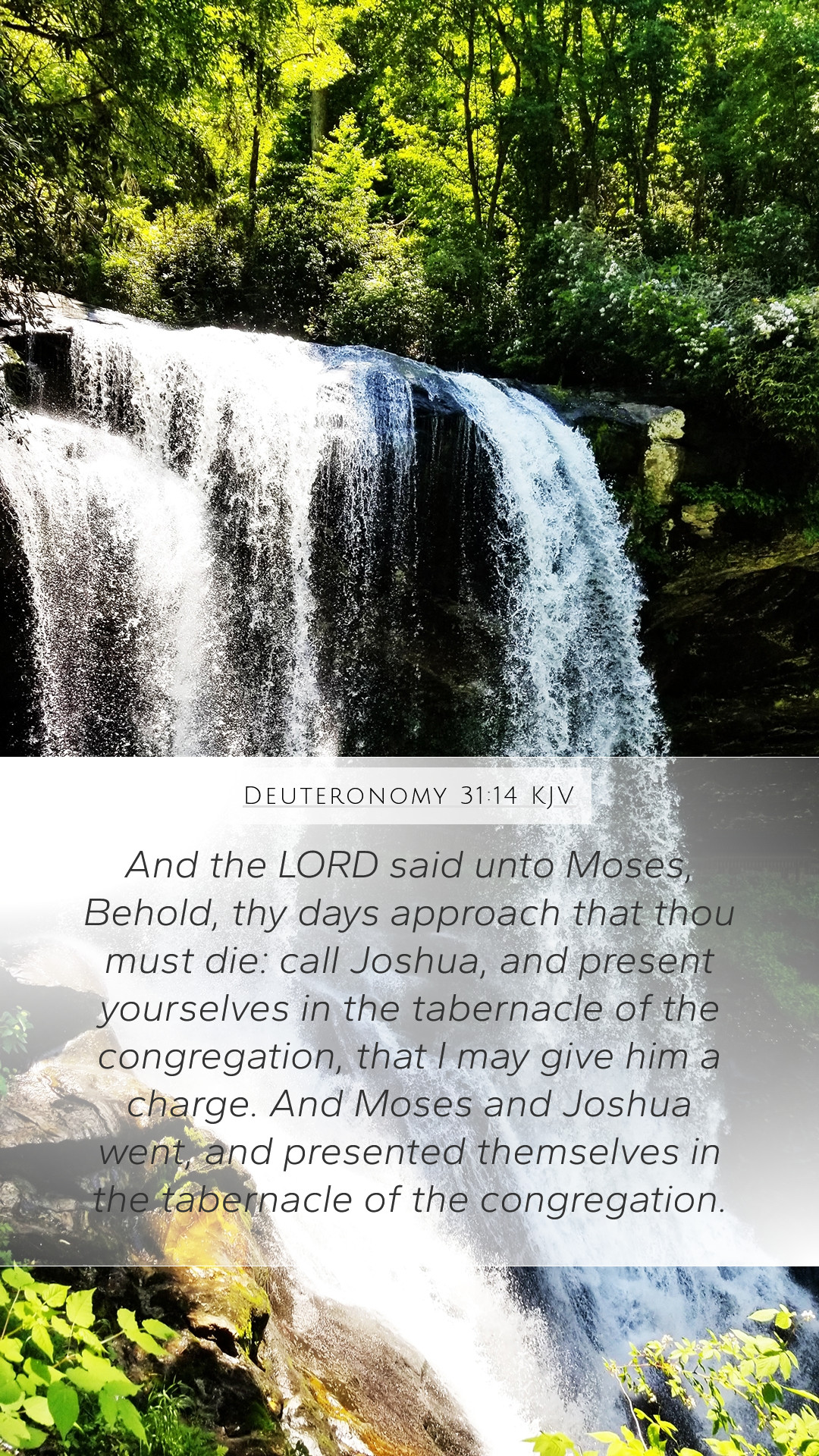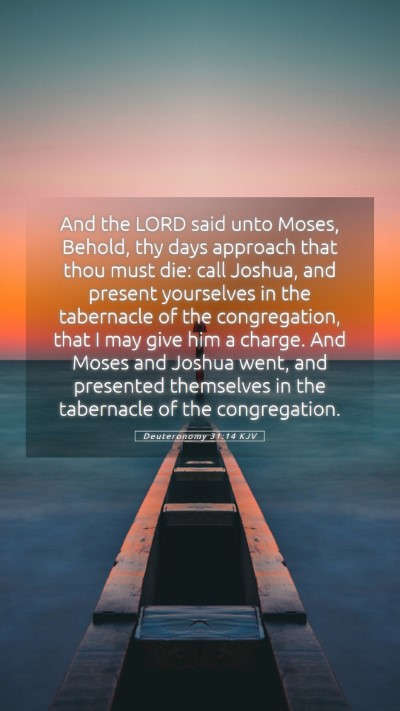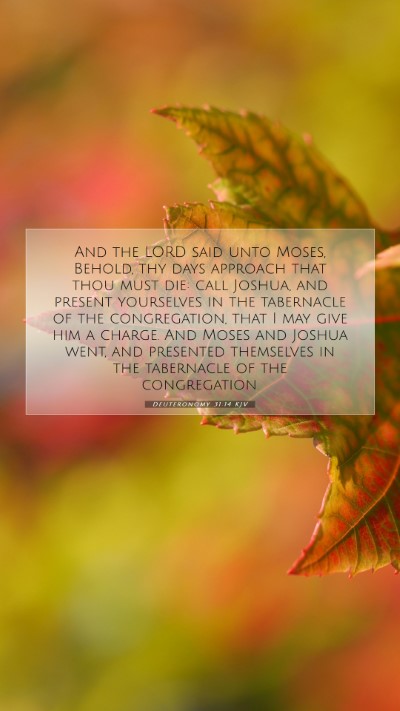Understanding Deuteronomy 31:14
Deuteronomy 31:14 states:
"And the LORD said unto Moses, Behold, thy days approach that thou must die: call Joshua, and present yourselves in the tabernacle of the congregation, that I may give him a charge. And Moses and Joshua went, and presented themselves in the tabernacle of the congregation."
Bible Verse Meanings
This passage has significant implications for understanding the transition of leadership within the Israelite community.
Bible Verse Interpretations
Moses, nearing the end of his life, is instructed by God to appoint Joshua as his successor, demonstrating the importance of preparing for leadership transitions. This reflects God's ongoing guidance and providence over His people.
Key Themes
- Transition of Leadership: Moses represents the old covenant, and Joshua symbolizes the new generation that will lead Israel into the Promised Land.
- Divine Appointment: God’s direct intervention and instruction highlight His sovereignty and plans for Israel's future.
- Preparation: The requirement for Moses and Joshua to present themselves in the tabernacle indicates the need for divine blessing and authority in leadership roles.
Bible Verse Understanding
According to Matthew Henry, this verse signifies God’s recognition of Moses’ impending death and the necessity for Israel to have a leader. Moses' obedience in calling Joshua underlines the value of mentorship and guidance in spiritual leadership.
Albert Barnes adds that this divine charge was given publicly, ensuring that all Israel recognized Joshua as Moses’ successor, thereby establishing his authority and legitimacy as a leader.
Adam Clarke emphasizes that the transition is crucial not just for the people but for the future fulfillment of God’s promises to them. Clarke notes the seriousness of the moment, where divine instructions are pivotal for future success.
Bible Verse Explanations
Deuteronomy 31:14 illustrates the completion of Moses' mission and the dawn of a new era under Joshua. This explains why God chooses this moment to visibly mark the transition of power, assuring the people of continuity in leadership.
Significance of the Tabernacle
The tabernacle serves as the central place of worship and divine communication, symbolizing God’s presence among His people. By gathering in this sacred space, Moses and Joshua acknowledge that true leadership comes from God’s appointment and blessing.
In-Depth Bible Verse Analysis
This moment not only reveals the chronological aspect of Moses’ life but also serves to teach future generations about the responsibilities of leaders. It underscores the importance of referencing deceased leaders and carrying forward their legacy while also adapting to new circumstances.
Related Bible Cross References
- Numbers 27:18-23: The ordination of Joshua by Moses.
- Deuteronomy 34:9: Joshua filled with the spirit of wisdom.
- Joshua 1:1-9: God’s commission to Joshua after Moses' death.
Application of Deuteronomy 31:14
For modern-day believers, this passage serves as a reminder of the importance of leadership within the church and community. Those in authority should seek God’s guidance continually and prepare others to take on future roles, ensuring a smooth transition that honors God’s purpose.
Bible Study Insights
This scripture is particularly useful for Bible study groups examining themes of leadership, divine guidance, and the importance of faithful service. Online Bible study resources can aid in exploring these concepts further and applying them to daily life.
Conclusion
In summary, Deuteronomy 31:14 offers a profound commentary on leadership transition through God’s providence, the need for divine blessing, and the importance of community acknowledgment. Understanding Scripture in this context can empower readers to appreciate the continuity of God's promises through faithful leaders.


